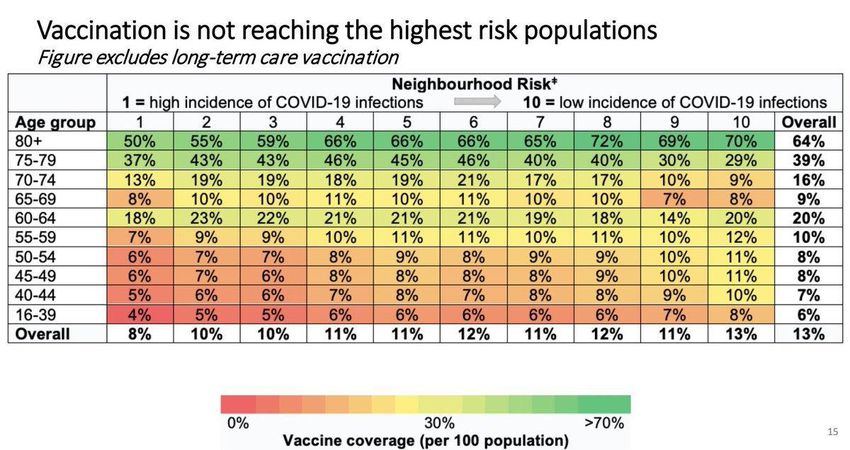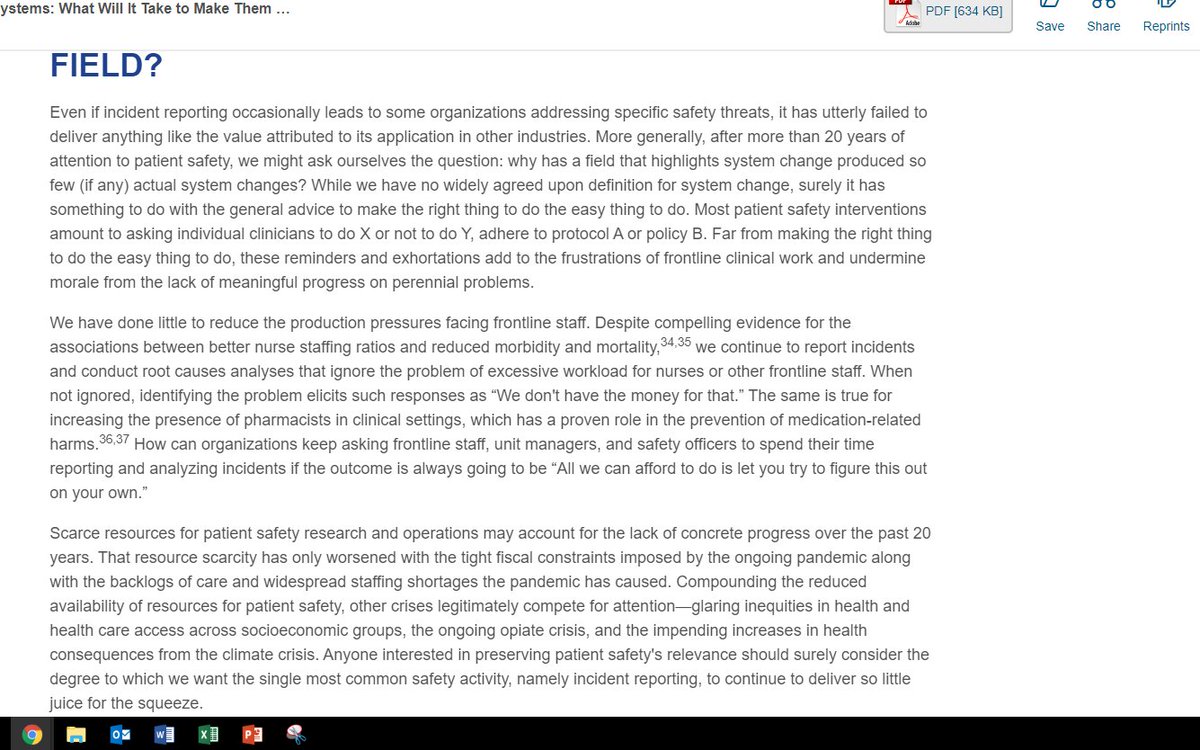
Kaveh Shojania
@kgshojania
Vice Chair, Quality & Innovation, UofT Department of Medicine, Sunnybrook Physician (and still fairly infrequent Tweeter even after 10+ years).
ID: 231289061
28-12-2010 03:26:01
153 Tweet
1,1K Followers
114 Following

Completely agree - excellent piece last week from Healthy Debate also made compelling case for this much needed policy change healthydebate.ca/opinions/denyi…


Heartfelt thanks to Tas Kapetanos MD Jay Bruce @DrDanSchumacher Jennifer S. Myers Brian Wong Lorelei Lingard and others. Whole point of talk to get conversation started on much needed pivots to priorites in academic medicine, so very gratifying to pos responses

Agree w Andrew Boozary MD & others; vaccine roll out needs to priortize people & neighbourhoods bearing brunt of COVID risks. Pic below recalls Tudor Hart's Inverse Care Law "The availability of good medical care tends to vary inversely with the need for it in the population served."


Agree with Isaac Bogoch and Eli Perencevich This article did better job than any other I have seen in explaining reasons for decisions about pauses, warnings etc for AZ vaccine. Doesn't make those decisions any less frustrating, but at least they make more sense now


Agree with Dr. Jan Hux 🍁✝ BLM & Rodrigo Cavalcanti – this is a powerful thread from Medical Axioms about how patients become ‘frequent fliers’ and the optimal response to individual patients

Agree with Amy Edmondson “worrying” not best word here & also that cognitive load of managing household something well-intentioned male partners (myself included) fail to take into account – as depicted in this comic on gender wars of household chores theguardian.com/world/2017/may…

Patrick Brady Maitreya Coffey Kaveh Shojania CQuIPS Academic Peds Assoc Alison Holmes I learned so much working with Patrick Brady on that session. Hope we get to co-present again in a happier post-pandemic world

As a former editor BMJ Quality & Safety - even tho for a very different journal than Michael Breakspear - can attest these Dos and Donts for manuscript cover letters are very worth reading for all authors

Just want to make clear that hot take from @DrDanSchumacher is a reasonable approach: covers letters are not necessary. & hook for your work needs to reside in manuscript not cover lttr. But, if you do write one, tips from Michael Breakspear capture my sense of things to do and to avoid

Mixed metaphor or not, great to see metrics themselves and positive perception of the tireless efforts of journals’ editors. I am sure fellow former editor-in-chief Mary Dixon-Woods would agree. Congratulations to Bryony Dean Franklin Eric Thomas and whole editorial team BMJ Quality & Safety


Appreciate en fuego icons x 3 from Patrick Brady. Learning is indeed the goal highlighted in this editorial on incident reporting and I worry that patient safety will struggle to maintain relevance if we can't show real progress





Patient safety paradigm emphasizes policies, structures at blunt end, not just actions of individuals at sharp end. Yet, attention to blunt end remains rare, as highlighted in excellent commentary by Walter O'D on contributions of admin decisions to patient safety problems.

Sobering essay on attacks against healthcare workers in conflict zones. As Dr Annie Sparrow writes, "the fight to protect medical and humanitarian workers is not new, but we are running out of time before it becomes futile" nybooks.com/articles/2022/…

Inspiring work, Benjamin Leis - I made a donation and will reach out to chat in coming weeks to hear about the experience and pick your brain for ideas on how we cna do more as physicians to adovcate for these people and help address their needs

